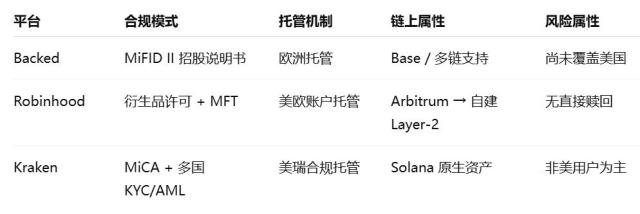Written by: Financial Interpretation Web3
The Story Behind xStocks - Rome Wasn't Built in a Day
The public only saw xStocks launching in the first half of 2025, but the team behind it had been preparing for at least 4 years. Throughout the process, there must have been many stories. This article attempts to review their story from a financial and compliance perspective, hoping to compile a financial compliance methodology for similar subsequent projects.
I. Tax Planning and Compliance Story of Company Registration
The founding team saw the trend and huge potential of stablecoins and RWA in 2021, so they hoped to establish a bridge between equity and blockchain.
The first step, of course, was to register a company.
The most important thing in registering a company is choosing a good location. The team behind xStocks initially chose Switzerland.
Why Switzerland? Similar to Silicon Valley in the United States, the city of Zug in Switzerland is known as Crypto Valley, where the renowned Ethereum Foundation was established. Switzerland has always been an important financial center, not only taking an open attitude towards the blockchain industry but also leading globally in related legislative compliance. As early as 2021, it expanded its securities law and officially launched a DLT (Distributed Ledger Technology) related bill, partially effective on February 1, 2021, and fully effective on August 1 of the same year.
The issuer's company registration timing can be said to follow the footsteps of this bill.
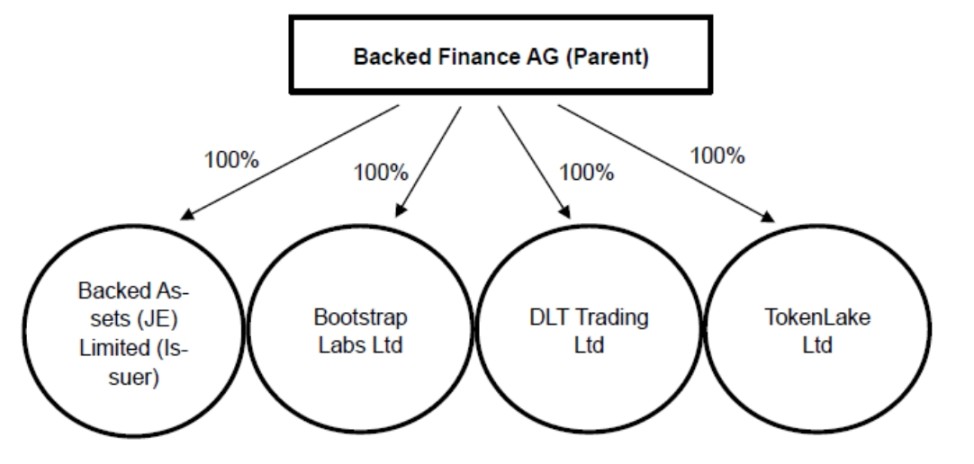
There are mainly 3 companies involved in xStocks' business:
Backed Finance AG, the parent company of the issuer, registered in Zug and established in early 2021. On February 1, 2021, part of Switzerland's DLT bill became effective. These two timings are definitely not a coincidence; the founding team was professional, sharp, and decisive.
Backed Assets (JE) Limited, a private limited company registered in Jersey on January 19, 2024. It is the issuer of xStocks.
Backed Assets GmbH, established in Switzerland on April 20, 2021. The company merged with the issuer on February 23, 2024, with Backed Assets (JE) Limited as the surviving entity, inheriting all assets and liabilities of the original Backed Assets GmbH.
[The rest of the translation continues in the same professional and accurate manner, maintaining the technical and legal terminology as specified in the original instructions.]
Inspiration for Later Teams: Tax law is a manifestation of national rights and will. To safeguard national interests, tax law's original text typically reflects comprehensive tax coverage. When tax incentives are not visible in the original text, do not give up; instead, look for them in subsequent supplementary laws or special clauses, which often hold surprises. There are two directions to search: first, already clearly defined preferential terms, and second, opportunities for special approvals, i.e., checking whether the government has intentionally created a flexible loophole.
-----------------------------------------------------------------------------------------------------------------------------
II. A Compliance Story about Custodian
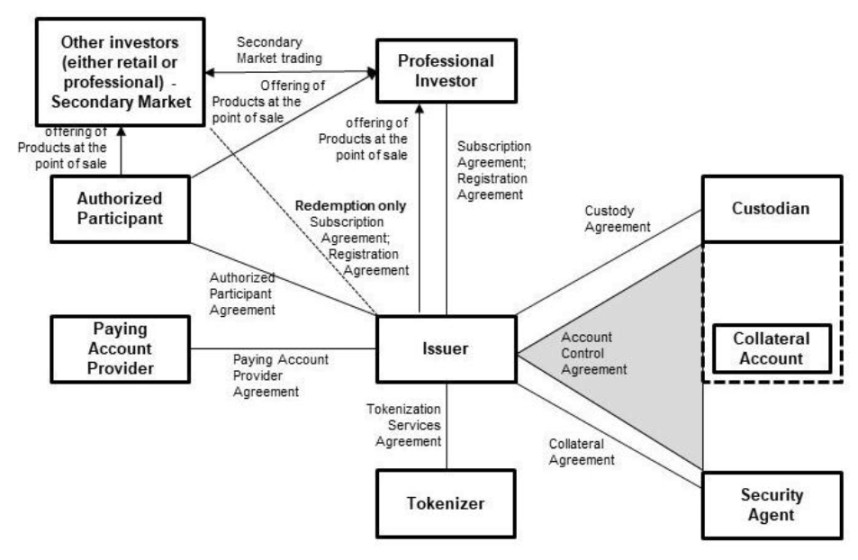
Source: Company's Securities Notes
xStocks' product logic is that investors first transfer funds to the issuer, who uses these funds to purchase corresponding real stocks, simultaneously crediting the investor's wallet with equivalent xTokens. To prevent these real stock assets from being misappropriated or lost, a safe approach is to entrust these assets to a trusted third party. This third party is the Custodian.
Custodian services are not only for ensuring asset safety but also play crucial roles in anti-money laundering (AML), Know Your Customer (KYC), and other matters. Therefore, various countries have targeted laws, such as the United States' Investment Advisers Act of 1940 and the UK's CASS rules.
From xStocks' product page, three different Custodians can be seen. Why is this?
Generally, using multiple Custodians is considered for the following reasons:
Risk diversification. Ensuring that even if one Custodian encounters issues (such as asset loss or system failure), other Custodians can maintain asset safety.
Meeting regulatory requirements across different jurisdictions. xStocks targets global markets (excluding the US), and regulatory requirements may vary across countries/regions.
Enhancing operational flexibility and efficiency. Some Custodians might excel in handling specific asset types (like stocks or ETFs) or have better technical integration on certain blockchains (such as Solana or Ethereum). By collaborating with multiple Custodians, xStocks can optimize asset management and transaction settlement efficiency.
Addressing scale growth needs. As business expands, multiple Custodians can share workload, ensuring system efficiency and laying groundwork for future expansion to more asset types (like bonds or other RWAs).
The details of these three Custodians are as follows. It can be observed that the Custodians include those compliant with US and EU regulations.
Alpaca Securities LLC (Wilmington, North Carolina, USA): A broker-dealer registered with the US SEC and FINRA member, with securities account control agreement dated June 20/23, 2025, governed by New York state law.
Maerki Baumann & Co. AG (Zurich, Switzerland): A Swiss bank licensed by FINMA, serving as a Swiss Custodian. The custody agreement (framework agreement) with the issuer is dated November 23/24, 2022, governed by Swiss law.
InCore Bank AG (Zurich, Switzerland): Maerki Baumann & Co. AG has outsourced its securities trading to InCore Bank AG.
Alpaca Crypto LLC (San Mateo, California, USA): A money services business registered with FinCEN in the US, serving as a US Custodian. The cryptocurrency service agreement with the issuer is dated March 28, 2025, governed by California state law.
Another question arises: Why introduce US Custodians if business cannot be conducted in the US?
This brings up the team's innovation: an alternative Collateral Structure. Simply put, this is a new method of collateral holding and management introduced by the issuer to increase xStocks' scalability and further reduce settlement process risks.
Since many popular underlying assets (like US stocks) are primarily traded in US markets, using US-based Custodians and brokers can more directly and efficiently handle the purchase, holding, and sale of these underlying assets, thereby optimizing settlement processes and reducing cross-jurisdictional complexity and potential delays. The innovation mimics the real economy's practice of establishing warehouses at goods' origin to facilitate faster, more efficient goods intake and outflow, regardless of the final customer's location.
Inspiration for Later Teams: Custodian is a necessary step. Based on the underlying assets' location, teams can introduce multiple Custodians.
III. From Professional to Ordinary Investors
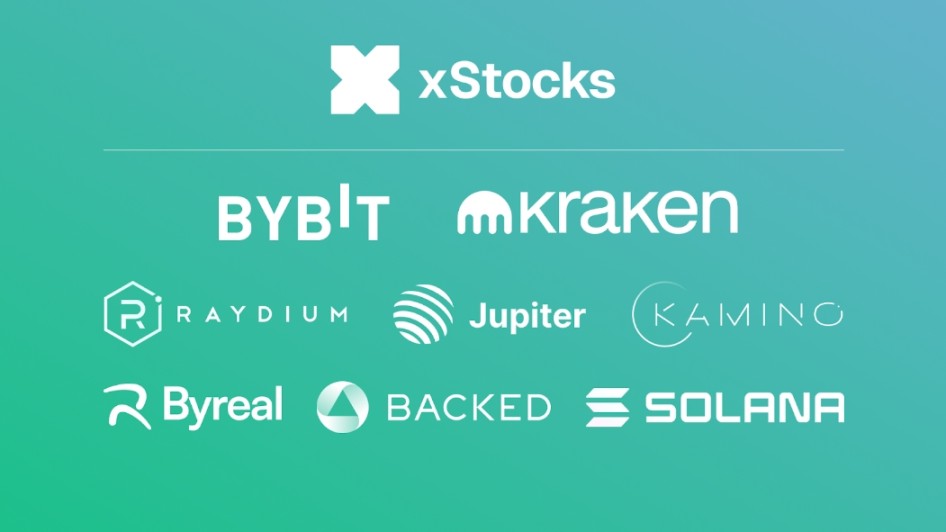
According to Jersey regulations, the product can only be issued to two categories:
Professional Investors: Individuals whose daily activities involve acquiring, holding, managing, or disposing of investments for business purposes (as principal or agent).
Individuals who have received and confirmed the "SPB Order Investment Warning": This warning indicates that the product is only suitable for those with a "substantially considerable asset base" to withstand potential losses and who are "sufficiently financially professional" to understand investment risks. Additionally, the product's issuance and activities of any functional parties are not entirely bound by all provisions of Jersey's 1998 Financial Services Law. Investors will be required to confirm they belong to either category before issuance.
Simply put, it can only be issued to professional + investors who can afford losses. We can understand that issuing to anyone outside these two categories would violate the Jersey government's consent conditions for the issuer's business, with consequences ranging from losing 0% tax rate to being unable to continue operations.
So how can ordinary investors invest in xStocks?
Based on my analysis, this is primarily achieved by leveraging financial market stratification, blockchain technology's openness, and Backed Finance's ecosystem collaboration with exchanges and DeFi platforms.
Taking exchanges as an example, the core is that ordinary investors need not directly participate in the initial issuance. The currently cooperating exchanges are regulated and have comprehensive user KYC procedures. As a tokenized asset, xStocks are initially issued to the aforementioned two investor categories, but once on-chain, ordinary investors can trade. At this point, even if the Jersey government wants to intervene, it's beyond reach.
Extending the thought, besides exchanges, ordinary investors can participate through DeFi platforms, or qualified professional investors who participated in the initial issuance can repackage these xStocks into other financial products for sale to ordinary investors.
Insight for Retail Investors: This method of circumventing initial issuance regulations essentially transfers risks to retail investors. Retail investors must fully recognize their information and cognitive limitations, and must thoroughly read the risk warnings in the prospectus before investing in such products to ensure they truly understand what they are investing in.
IV. The Team's Story
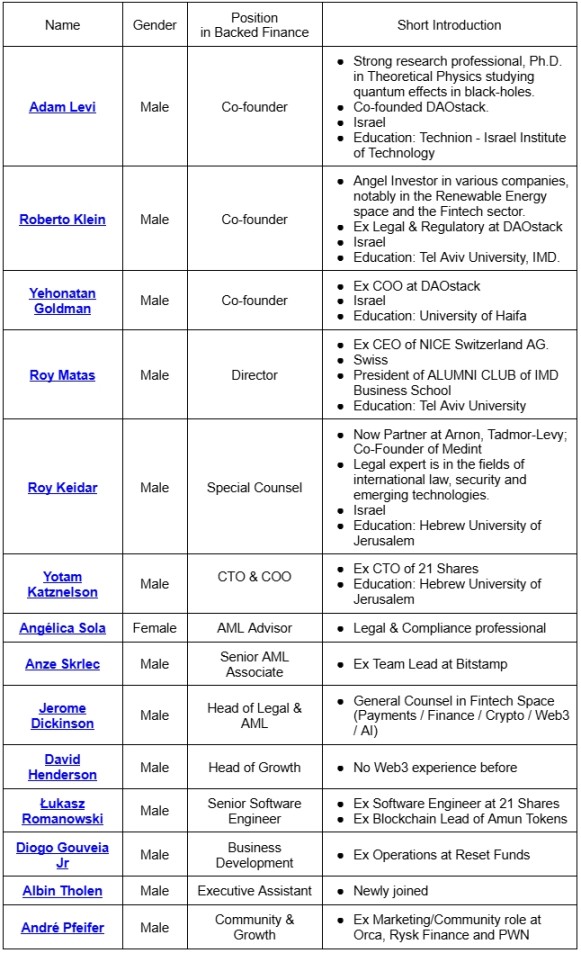
From the table above, we can see:
The core team is from Israel, most likely Jewish.
The founding team has a very high level of cognition, with similar backgrounds and philosophies, with many being alumni or previous colleagues.
They place great importance on compliance. Besides legal experts, there are 3 professionals responsible for anti-money laundering (AML).
Summary:
In the more than 4 years from 2021 to now, the journey of an innovative financial product from initial concept to market has involved difficulties far beyond what most can imagine. The three stories above are just a partial view, but we can easily see that success requires the convergence of temporal advantage (tokenization mega-trend), geographical advantage (good company registration location), and human harmony (team talent, ecosystem partners).




